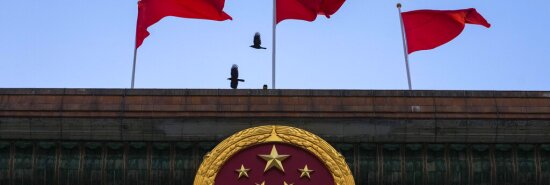
China’s ambassador to the Netherlands has a meltdown over chip ban
Tom Rogan
Video Embed
In a striking interview with Dutch newspaper Het Financieele Dagblad on Monday, China’s ambassador to the Netherlands went into “wolf warrior” mode.
The “wolf warrior” strategy of Chinese diplomacy, involving aggressive rebukes of any criticism of China, has been on the decline recently. President Xi Jinping appears to have realized it tends to alienate rather than intimidate its intended audiences.
HOW PUTIN’S RARE PAGEANTRY AND PROMPTNESS SHOW HIS IMMENSE VALUE FOR XI
Not today, however.
Ambassador Tan Jian’s latest threats and utterly disingenuous rhetoric come in response to new Dutch government restrictions on high-tech chip exports to China. Earlier this month, the Netherlands banned the export to China of advanced chip manufacturing systems by its world-leading ASML company. Although the Netherlands is now due U.S. reciprocity on its priority concerns (U.S. pressure was behind the ban), the chip restrictions were justified. That’s because China is using the related technology not to operate hospitals, but to build more advanced weapons with which to wage war. Considering the high risk of a U.S.-China conflict over Taiwan this decade, the United States must do everything in its power to mitigate China’s means of killing American service personnel.
Tan obviously doesn’t like that.
Denying the indisputable truth that China uses high-tech chips to build more of the People’s Liberation Army’s most advanced weapons, the ambassador offered Het Financieele Dagblad an absurd analogy. The newspaper reports that he held up a paper teacup and said, “This could also be used by the military. Is it also military technology?”
It’s a reference to so-called “dual use” technologies that have both civilian and military uses. Nevertheless, even the tea-loving English wouldn’t pretend that a paper teacup has the same dual-use potential. After all, a paper teacup can’t build targeting systems on a Dongfeng anti-ship ballistic missile or a Shijian-21 satellite-killing satellite.
But Tan was just getting started. He next observed: “If the Netherlands implements this [ban], it will have a negative effect on our economic cooperation and our relations. … China will not swallow everything. When damage occurs, we must take action to protect ourselves. I’m not going to speculate on what that might be. [But] it won’t stop with just harsh words.”
This rhetoric hints at the arrogant, almost childish anger that always bubbles beneath the surface of Communist China’s diplomatic strategy. Yet Tan isn’t just upset about the chips. Asked about Chinese cyberattacks and intellectual property theft, he claimed that “China has strict laws and high penalties to protect intellectual property. … How about the cyberattacks that are unleashed on us every day? My mailbox is also constantly being broken into.”
The mailbox reference is quite funny. That said, think about the gall it requires to claim with a straight face that Beijing has “strict laws and high penalties to protect international property.” Considering the vast scale and ambition of Chinese intellectual property theft around the world, Tan’s words are ludicrous.
China’s hawkish (if not terribly smart) foreign policy chief Wang Yi might like this “wolf warrior” adventurism. But it’s hard to see how Tan has done China’s interests any favors with this interview.
